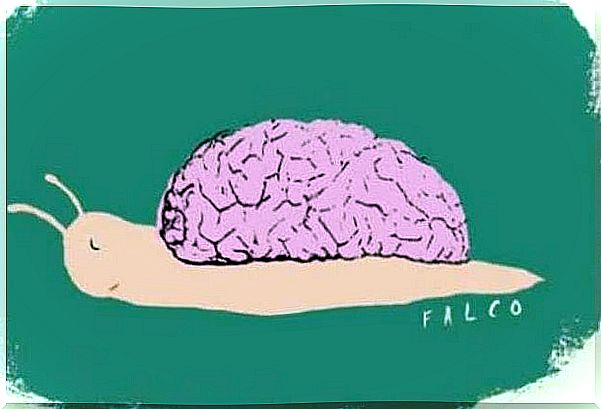Is The Problem Our Student Or Education System?

You can not talk about learning without talking about an education system. These two things are closely linked and they affect each other all the time. A problematic consequence of building our education system is the tendency to label children as slow learners. This is problematic because it sets the parameters for an ideal learning rate – but only learning that takes place within the system itself.
Most education systems in the world are rigidly standardized. They define what people should learn, how and when. They also define the methods used to assess whether these goals are being achieved.
“Anyone who wants to know something about the world must learn about it in its special details. Knowledge is not intelligence. ”
–Heraclitus–
The modern education system
Our education system determines what constitutes slow learning. People generally believe that the system is correct and that individuals should be able to respond to what it requires and function appropriately. If not, they must have a deficit or something needs to be fixed. Students are labeled as slow, fast, intelligent and unintelligent. And the worst part is that these labels are the starting point for the path to academic success or failure.
Slow learning or just different?
This is a true story. A third-grade student began the school year with difficulty reading and writing quickly. His teacher often pointed out that he was the worst in the class . She wanted to write sentences on the board that the students had to copy, and he was always the last to finish.

Because she could not wait for him, the teacher always wiped the blackboard clean and demanded that he make it later in the day with a friend’s notebook. One day, after more of the same, the teacher could not find the blackboard mushroom . The boy had taken it and hidden it without anyone noticing. He finished copying and then went up and wiped the board clean.
Is it fair to say that this boy is unintelligent? If you define intelligence as the ability to use available information to solve problems, we must conclude that he is ingenious. The story implies that he used an analysis process that involved defining the problem, evaluating the available alternatives, and arriving at a solution. His action was also ethical, as he never tried to hide his behavior – he just wanted to assert his right to have the same opportunity as everyone else.
The boy was punished for what he did. He “wasted” the time of his classmates and went against the teacher’s orders. All she was worried about was that the kids could copy the text at the average time.
Each student learns at their own pace and in their own context
All teachers and the education system in general present that learning is a comprehensive process. It involves cognitive, emotional, relational and symbolic processes, among many others. At least that’s what they’re saying . But how many teachers actually consider their students’ home situation when they think about the learning conditions they are exposed to?

In Bogotá, Colombia, a public school tried a learning program that used Jean Piag’s pedagogical methods. For him, the content of learning was not as important as the mental process involved . In this school they removed tests, courses and subjects. Instead, each child was able to sign up for the hours they wanted, and their performance was never numerically evaluated.
The results were surprising. Students could go to the same class several times if they wanted to, and they were motivated to do so . Performance increased significantly and learning was much more effective. Because they did not pass or dump, they were more open about when and why they did not understand anything. The students thought the school was their favorite place. A similar thing has happened at the so-called Miracle School in Barcelona, Spain.
So before we pathologize or stigmatize a child by telling them that they are a slow learner, that they have an attention deficit, that they are intellectually backward , we must instead diagnose the education system in which they are judged and felt.
It is also important to analyze each student’s situation. Is there anything at home or in their personal lives that makes them nervous or depressed? Does their home environment help their learning? In addition to neurological considerations, we still have much to discuss on the subject.










